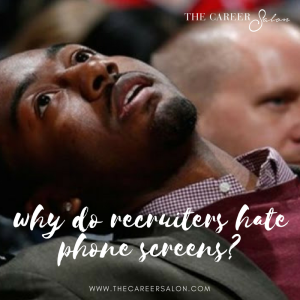Have you ever made a mistake at work!? Join us as we discuss making mistakes at work and how to handle terminations from an employee perspective.


Everyone is thinking about Public Health and Safety during this time. The Coronavirus pandemic presents unique circumstances that we have not encountered during this generation. Hopefully, we are all willing to work together to communicate and find unique solutions that will help preserve the employee and the employer alike. Here are a few tips:
Employers:
1. Lead With Empathy
Everyone has a level of stress during this time. Be sensitive to that and watch your communication and tone
2. Check with all benefits vendors to see what is available for your employees
i.e. EAP, Short Term Disability, Worker’s Compensation
3. Balance your approach with flexibility and safety
i.e. You may have to bend your attendance and work from home policies
4. Think of out the box solutions like rotational schedules
Maybe rotating staff will reduce exposure if you have to stay open because of the nature of your business
5. Don’t Panic.
It makes things even more stressful and your employees are observing how you lead and handle stressful situations as an organization
6. Check for government assistance to employers, as bills for aid are passed
Employees:
1. Stay Calm and wash your hands (with soap and hot water, at least 20 seconds)
2. Stayed informed and read ALL information distributed by the organization during this time (and ask questions if needed)
3. Make sure you know your rights as an employee:
4. Take advantage of benefits provided by your employer
5. Stay put
Your plans might have been to jump ship, but if you are with an organization that is supporting you through this time and treating you fairly, you might want to reconsider for the short-term. We are unsure on what the economy or status of certain businesses are going to be long-term. You definitely do not want to transition to something unstable.


Okay, I’m back! Recruiting got busy for a minute so I took a much needed break. During this heavy recruiting season my disdain for phone interviews has increased. Trust me I’m not the only one! It amazes me how many people want jobs and those that get the opportunity to interview don’t prepare themselves.
Phone interviews can be tricky because you have to put a level of energy and preparedness into a conversation where you can’t see the person. If you want to get your dream position, most likely a phone interview will be a part of the equation. Here are some tips that will guide you in preparing for a successful phone interview:
I hope these tips get you started on the right track to becoming a better phone interviewee!

You think you’re awesome…In fact, you do good work and it’s regularly documented in your performance reviews. I hate to be one that has to bring out what goes on behind the scenes, but this will help you if you let it. Corporate America and some of the leaders it produces will have you living a farce. If you are not having regular discussions with your manager discussing your performance, key performance indicators, constructive feedback, etc. you might not be doing well as you think. I’ve heard many stories and seen things (i.e. out of the blue terminations, performance improvement plans after years of mediocrity) that indicate there are managers who are scared to manage, which is a disservice to your career.
Let’s take a recent case study, Pepsi (a moment of silence)… There are many reasons why the advertisement was a disaster but that’s for another post. Who was the rockstar marketing executive who signed off on the mediocre misguided musings of their direct report(s)? It’s unfortunate, but leadership is fading and the consequence is your reputation and your job. Leaders need to step up and tell the truth instead of going behind closed doors with their colleagues to say “Johnny isn’t cutting the mustard” or “Becky is good but not great.” Where are the fruitful honest conversations that are needed to produce high-performance? I’ve seen many managers that are afraid to have direct conversations in the workplace, that then want to fire an employee without warning or documented conversations. If you wear a passive aggressive ‘banner’ you should not be a manager.
I’m very passionate about great leadership as you can tell but don’t let management’s incompetence diminish the responsibility you have for YOUR career. You have a duty to be proactive and take control of your career. Don’t take what your manager has to say for face-value. Have those conversations and really dig deep on your work performance. We all have areas of improvement and those need to be discussed on a regular basis along with the kudos. Here are some recommendations on how to be proactive with the status of your work performance.
Sometimes when I think about passive aggressive managers in Corporate America, a tune by The Undisputed Truth, “Smiling Faces” comes to mind:
“Beware. Beware of the handshake that hides the snake,
I’m tellin’ you beware of the pat on the back it just might hold you back.
Jealousy, (Jealousy) misery, (misery) envy.
I tell you can’t see behind
Smiling faces, Smiling Faces, Sometimes they don’t tell the truth.
Smiling faces, smiling faces tell lies and I got proof.
Your enemy won’t do you no harm, ’cause you’ll know where he’s comin’ from;
don’t let the handshake and the smile fool ya.
Take my advice I’m only tryin’ to school ya.”

A most wonderful season is upon us…BONUS SEASON!! Many corporate professionals who work on the calendar, fiscal year are waiting with anticipation on performance bonus checks that will be distributed this month. What most people don’t know is that this is one of the most common occasions for voluntary attrition. On the recruiting side, I somewhat dread this season because I know for a fact, I will be backfilling positions due to people getting their bonuses and resigning to take new jobs, external to the company. There are two sides to this season, the employee that is looking to leave after they receive their bonuses and the other is the employer that has to fill the vacant spot. For the purposes of this blog post, I’ll focus on the side of the employee. Here are a few things to keep in mind if you are leaving a job during bonus season:
Have you ever left a company during bonus season? Share your experience in the comments.